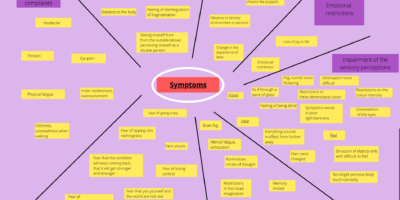Suffering from recurring or persistent feelings of unreality and alienation is very stressful for those affected.
It is understandable that people affected look for ways to do something about it.
There is a whole range of self-help tools that those affected by depersonalisation or derealisation can try to combat the symptoms.
Difference between psychotherapy and self-help
If you are affected by depersonalisation and derealisation, it is also possible to undergo psychotherapy. Psychotherapy is a proven scientific method for treating illnesses and diseases.
A psychotherapist is a specialist who has undergone years of training. They have knowledge and expertise in methods and approaches for treating chronic depersonalisation or derealisation.
In contrast, the area of self-help is completely autonomous. This means that sufferers themselves choose which strategies and methods they want to try out to combat the disruptive symptoms.
This has advantages and disadvantages.
Advantages of autonomous self-help
The person affected decides for themselves which methods and strategies they want to try out.
Affected persons are free to choose the methods and strategies they want to try.
The methods are independent of time.
The person concerned is not accountable to anyone other than themselves.
Many sufferers experience a greater sense of independence and self-determination than in psychotherapy.
Disadvantages of autonomous self-help
Methods and strategies have to be found independently.
Those affected must constantly motivate themselves to implement the methods and strategies.
There is no person with whom successes and failures can be discussed.
There is no opportunity for reflection with a specialist. There is no ‘view from the outside’.

Schreibe eine Antwort